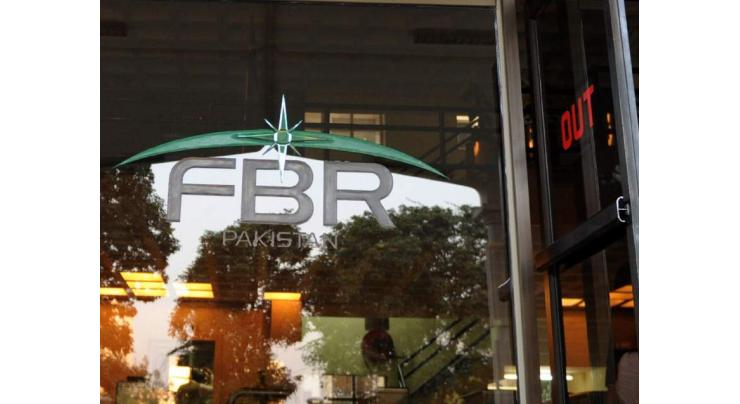
FBR Has Promised To Resolve Exporters' Issues, Says APTMA
Fahad Shabbir (@FahadShabbir) Published November 22, 2023 | 07:38 PM

Federal Board of Revenue's Input Output Co-efficient Organisation (IOCO) Director General Irfanur Rehman Khan has assured the All Pakistan Textile Mills Association (APTMA) of resolving issues of exporters related to determination of Input Output Ratios (IROs), Wastages and Analysis certificates by the next week
LAHORE, (UrduPoint / Pakistan Point News - 22nd Nov, 2023) Federal board of Revenue's Input Output Co-efficient Organisation (IOCO) Director General Irfanur Rehman Khan has assured the All Pakistan Textile Mills Association (APTMA) of resolving issues of exporters related to determination of Input Output Ratios (IROs), Wastages and Analysis certificates by the next week.
According to the APTMA spokesman here on Wednesday, he also sought a proposal from the Association to make the determination process more viable and export-friendly after due consideration. He agreed that Textile Notes might serve as reference and guidance for determination of Input Output ratios. However, these Notes need to be reviewed as they were compiled more than a decade ago. He was responding to the queries raised by the textile industry representatives on his visit to APTMA House.
DG IOCO was accompanied by Chaudhry Muhammad Akram, Director IOCO, Ms. Ammara Durrani, Additional Director, Ms. Aneeqa Afzal, Additional Director, Ms. Nadia Aslam, Deputy Director and Usman Butt, Deputy Director, IOCO. Chairman APTMA North Mr Kamran Arshad along with senior executives Anjum Zafar, Muhammad Ali, Ismail Fareed, Shams Elahi, Danish Aslam and Secretary General Raza Baqir.
Irfanur Rehman informed the Association that the Federal Board of Revenue (FBR) had already constituted a committee to update Textile Notes, in consultation with academia, textile associations and other stake holders. He added that IOCO was following a flexible approach in dealing with the issues of the textile industry, which is contributing impressively towards earning foreign exchange, creating jobs and expanding manufacturing base in the country. He said the newly introduced Export Facilitation Scheme (EFS) is experiencing teething problems, which would be overcome soon with the help of stakeholders.
He informed the audience that the IOCO has cleared the backlog of IORs and Analysis Cards.
The Collectorates had referred the industry cases mistakenly, which are addressed and the IOCO is left with about 200 cases at present against a backlog of 2200 earlier. He assured of not letting create another discrepancy, as the Collectorates are advised to refer only new cases for determination purposes in future, he added.
In his welcome address, Chairman APTMA North Kamran Arshad suggested to involve representatives from the Association as well as National Textile University for assistance of IOCO while determining wastage ratio of the APTMA members. He said Ms. Zeba Hai Azhar, Member (Customs), FBR has already constituted a committee to update wastage ratio with equal representation from the industry and the department, which is a welcoming sign.
He pointed out that inordinate delays in determination of Input Output Ratios (IORs) and incorrect wastages and urged the DG to play a role in strict implementation of the Textile Notes.
He recalled the meeting dated October 24, 2023 at APTMA office and reminded of the announcement of issuing IORs strictly according to the FBR Textile Notes but to no avail. There would be no need for visits by the department if FBR Textile Notes are followed in letter and spirit, he argued. In case of multiple locations of manufacturing unit, he suggested to determine where principal manufacturing unit is located. The IORs should be granted automatically without visit and redeterminations in respect of items where Analysis cards have already been issued. He further proposed that multiple analysis certificates should not be required for similar or identical products. Chairman North also sought upward revision of Duty Drawback rates of textile products.
Recent Stories

Tickets sale for fans zones in Australia for Pak-India match to start on June 4

LHC grants bail to Chaudhary Parvez Elahi

Two underpasses to be built in Islamabad: Mohsin Naqvi

One-day Mourning in Pakistan today for Iranian helicopter crash victims

Currency Rate In Pakistan - Dollar, Euro, Pound, Riyal Rates On 21 May 2024

Today Gold Rate in Pakistan 21 May 2024

PTI founder acquitted in May 9 vandalism case

Liverpool confirm Slot will replace Klopp as manager

Russian playwright & director on trial for 'justifying' terrorism

Free media, responsible opposition play crucial roles in national development: S ..

AJK leaders condolence Iranian President's demise in helicopter crash

Schauffele birdies final hole to capture PGA for first major win
More Stories From Business
-
Turkish stock exchange up at open
15 minutes ago -
China approves fixed-asset investment projects worth 320.7 bln yuan in Jan-April
55 minutes ago -
Shanghai bourse-listed firms report profits of over 1.16 trln yuan in Q1
55 minutes ago -
Ideal season for sowing cotton, says Dr. Ali
2 hours ago -
Exchange rates for currency notes
3 hours ago -
Foreign exchange rates
3 hours ago
-

Currency Rate In Pakistan - Dollar, Euro, Pound, Riyal Rates On 21 May 2024
4 hours ago -

Today Gold Rate in Pakistan 21 May 2024
4 hours ago -

KP petrol pumps, dealers call off strike
15 hours ago -

Cabinet Committee approves Power Division's proposal for nomination of independent directors
16 hours ago -

Gold hits record high as Iran shock triggers haven support
16 hours ago -

Azad Jammu and Kashmir (AJK) Food Minister Akbar Ibrahim calls on Ch. Shafay Hussain
16 hours ago











